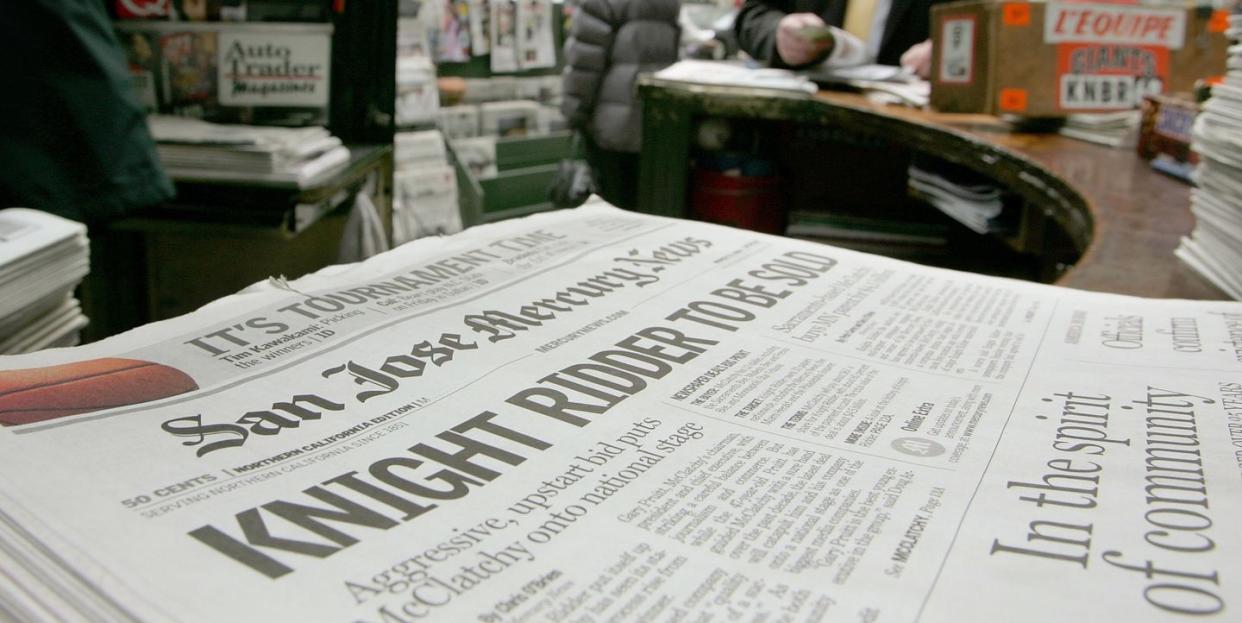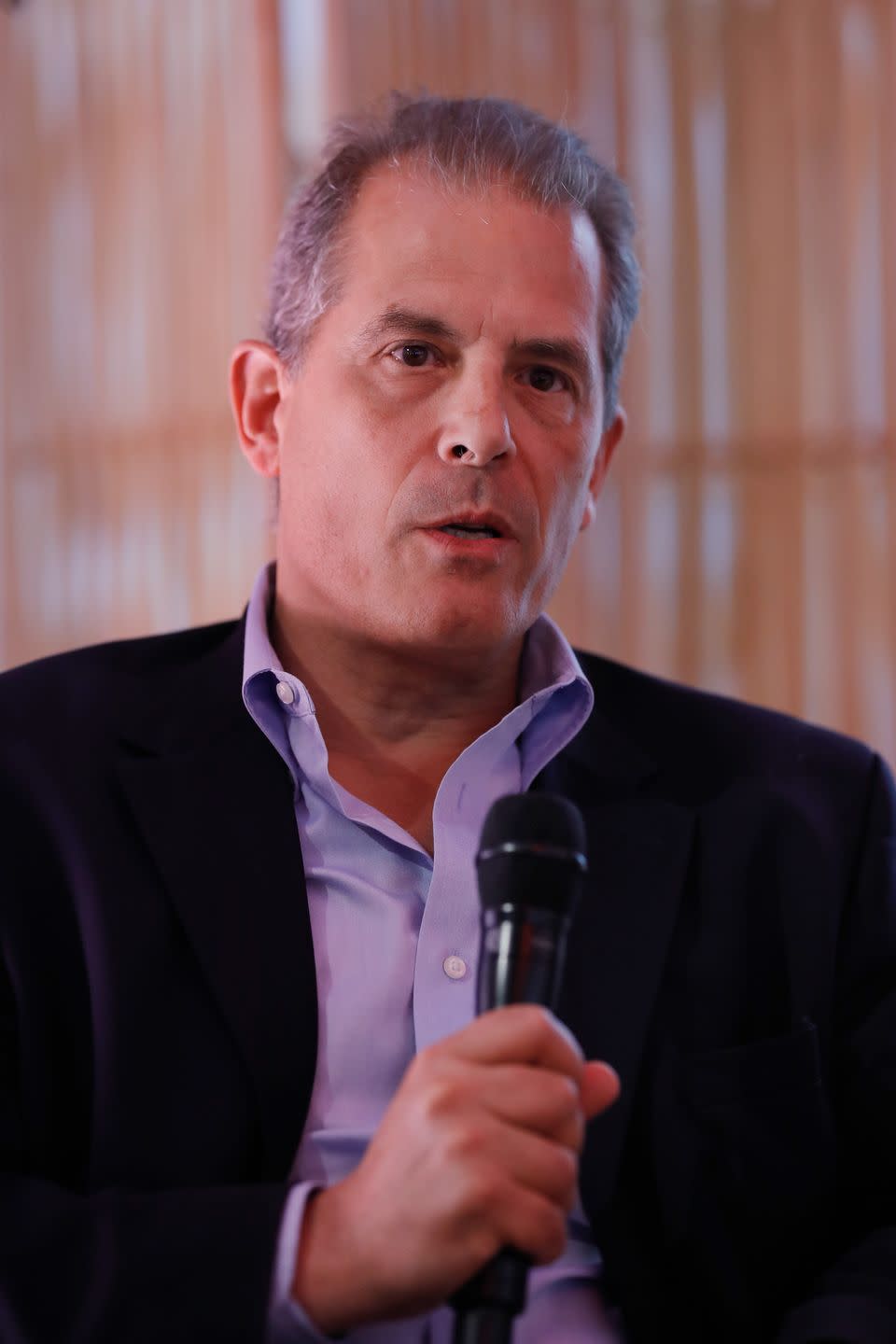I Care a Lot More About These Two Journalism Stories Than Anything Going on at The New York Times

A couple of days ago, a hedge fund called Chatham Asset Management bought the McClatchy chain of newspapers, which includes both the Miami Herald and the Kansas City Star, out of Chapter 11 bankruptcy for $300 million. (Chatham already virtually owned the financially strapped company through the device of being its major lender.) From Poynter:
The stage was set for the McClatchy family to relinquish control and put the company into bankruptcy. They chose to do so after failing to get a waiver from the Internal Revenue Service or the PBGC for pension payments due this year that the company would be unable to make.
Chatham also controls American Media Inc., which includes the National Enquirer (which it announced in April 2019 had been sold — though the transaction has never closed). It also has a controlling interest in Postmedia, a large Canadian chain. Chatham has managed each with a light hand. And since it has been in a position to influence decisions in McClatchy for some time, my guess is that deep cuts or other radical action once it owns the company are not likely.
Yes, and I'll believe that when I see it.
Some former McClatchy executives, and the Pension Benefit Guaranty Corporation, already are suspicious that some shenanigans went on between the company and the hedge fund when the terms of the deal were being negotiated. (I hear anything called "Something Asset Management," and I grab for my wallet, and maybe yours, too.) Of course, Chatham did keep the chain from falling into the meat-grinder that is Alden Global Capital, which would sell its employees to Somali pirates for a two-point bump in the Dow. What ultimately did McClatchy in was the massive debt it incurred when it bought out Knight-Ridder 13 years ago. It never got out from under that $2.7 billion hole.
And that brings us to why this latest development bothers me so. In 2001 and 2002, when the W Administration was lying us into a war in Iraq, the Knight-Ridder D.C. bureau, most notably Jonathan Landay and Warren Strobel, were just about the only mainstream reporters in Washington calling bullshit on the whole business. Deeply sourced within the intelligence community, the K-R team wrote story after story about how the case for war was being ginned-up by interested parties in the administration. Landay and Strobel were significant voices in this great Bill Moyers special on PBS. Upon listening to a clip of Dick Cheney in which Cheney said Iraq was going to produce nuclear weapons fairly soon, Landay told Moyers:
I looked at that and I said, "What is he talking about?" Because, to develop a nuclear weapon you need specific infrastructure and in particular the way the Iraqi's were trying to produce a nuclear weapon was through enrichment of uranium. Now, you need tens of thousands of machines called centrifuges to produce highly enriched uranium for a nuclear weapon. You've gotta house those in a fairly big place, and you've gotta provide a huge amount of power to this facility. Could he really have done it with all of these eyes on his country?...So, when Cheney said that, I got on the phone to people, and one person said to me — somebody who watched proliferation as their job — said, "The Vice President is lying."
The K-R reporting kept me sane in those crazy times, so the idea that the company that bought Knight-Ridder is now owned by a hedge fund does not fill me with joy.

And then there's this superb, poignant story by Dan Barry of The New York Times about Evan Brandt, the last reporter for the Pottstown Mercury in Pottstown, Pennsylvania. Brandt's paper, the smallest one ever to garner two Pulitzers, was sold to Alden. Its newsroom is now located in Brandt's attic. These two events are not coincidental. So, at one point, Brandt decided to take his complaints to the boss, and this, from Barry's story, is glorious.
Early on a sunlit afternoon, Mr. Brandt drove his Corolla to the Freeman mansion. He carried a notebook and wore shorts and a black “News Matters” T-shirt. This is his account of what happened next. As Mr. Brandt was posing with his cardboard sign for a photograph to circulate on social media, a woman driving away from the home stopped to ask if he needed help. He asked if Mr. Freeman was home. She looked at his T-shirt and sign, said no, and drove away. But he could hear music — Dave Matthews Band? — echoing from the house...
Mr. Brandt recalled that as he waited in the foyer, Mr. Freeman appeared upstairs, shirtless and with a baby in his arms. For a fleeting moment the two men locked eyes: the fit, bare-chested multimillionaire and the rumpled newspaperman from Pottstown who made 46 grand a year and had a question. Alden Global Capital shook its head and walked away.
He drove to the guy's mansion and he got in the front door. That is so fcking old-school. Ben Hecht would have been proud. Royko would've set Brandt up at the Billy Goat all night long. This is the craft that won my heart when I was nine and never has let go, even as the business itself is losing its grip on the country. This is why I have done this since 1976. Because in the field are people like Landay and Strobel, and stubborn romantics like Evan Brandt—and, yes, he does look like me.
This is also why I have no room in my mind to give golden monkey spit about Bari Weiss's tender feelings.
Respond to this post on the Esquire Politics Facebook page here.
You Might Also Like

